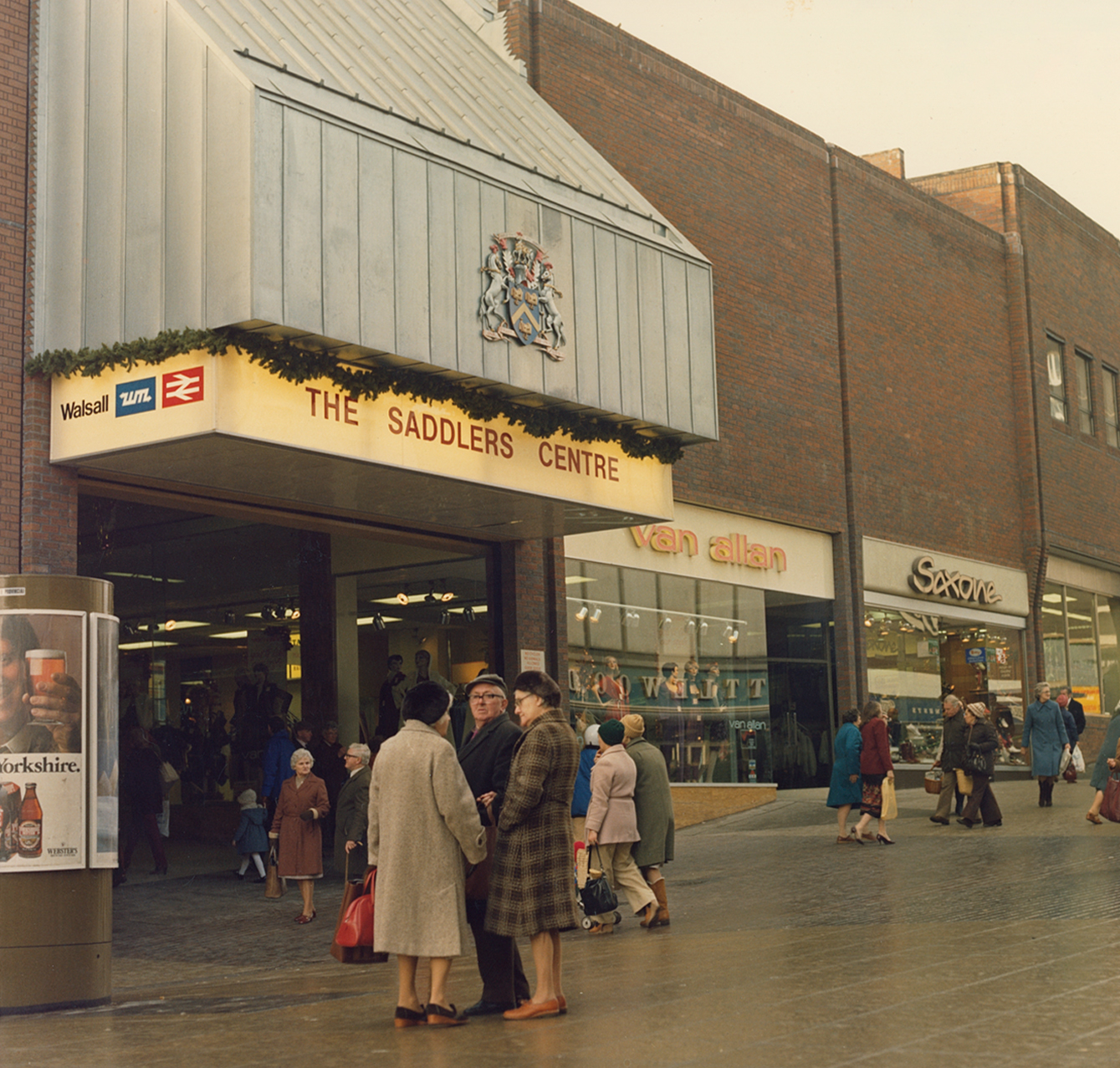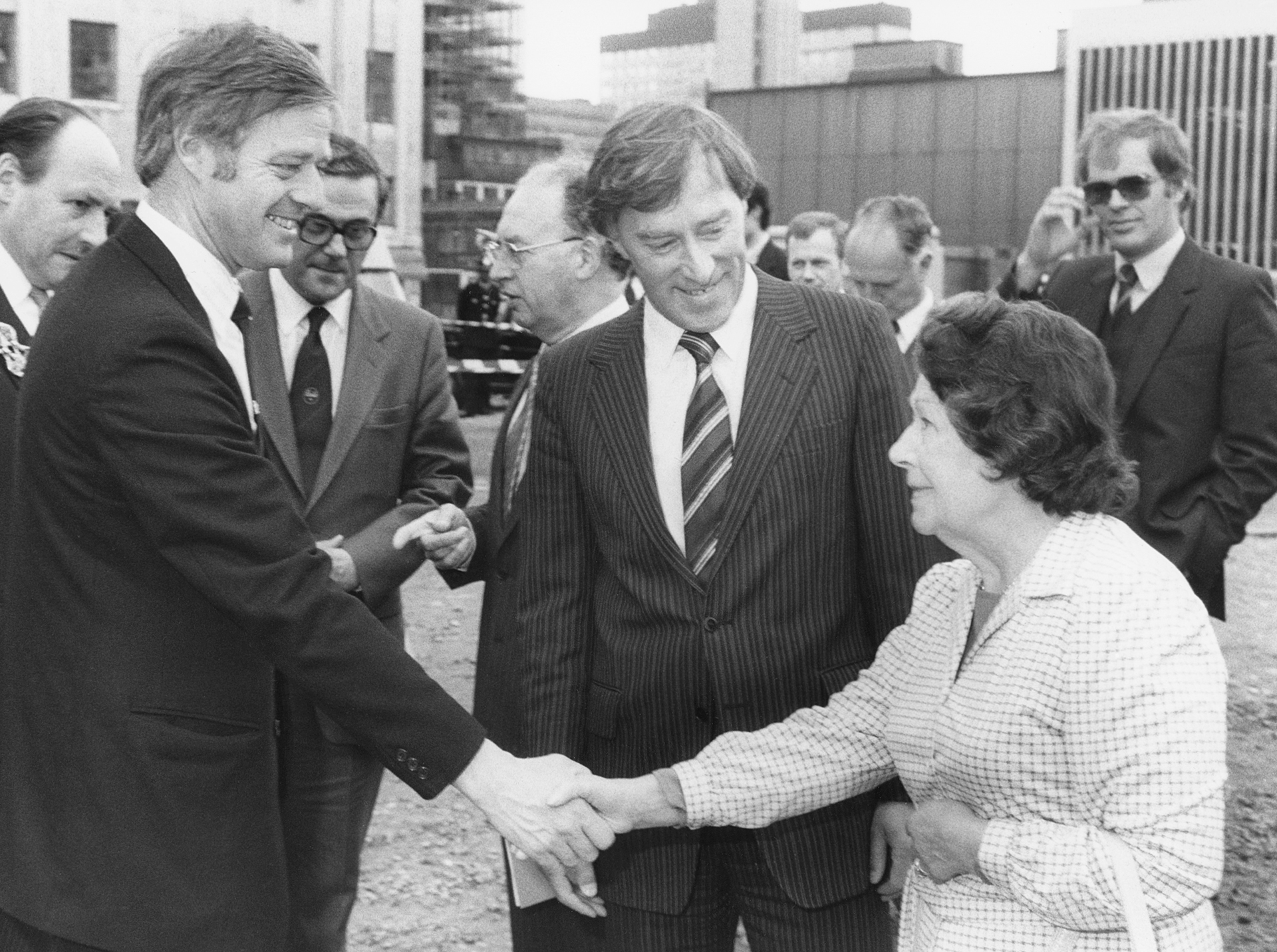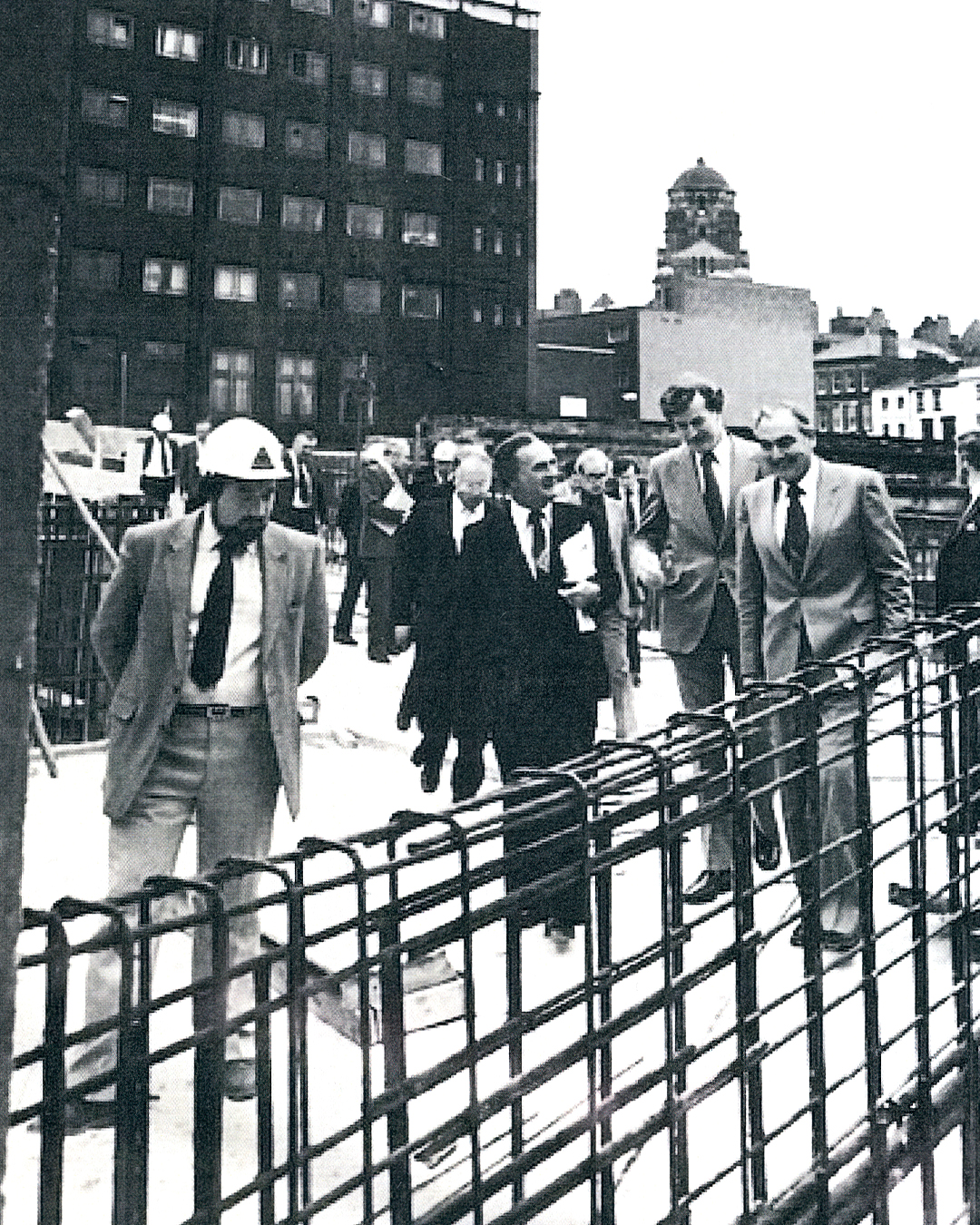
It’s fair to say that Brian Ashby FRICS has kept himself busy during his long career in commercial property development.
He says he “will never retire” and continues some “arms-length involvement” in the sector, as well as farming. He began motor-racing in his 40s, made a late-career sidestep into filmmaking and still goes skiing at the age of 88.
Ashby was born in Birmingham in 1936 and left school at 16 to find work, taking up a correspondence course to qualify as a chartered auctioneer and estate agent. However, just five months after passing his exams he was called up for national service.
He knew that the government of the day had been discussing scrapping national service and so, having already been allowed one deferment, he tried his luck again (this time to take the Institute of Town Planning examination). The swift reply was: “Report on 1 August 1957. You have had your deferment.”
In his second year in the Royal Artillery, he was posted to Hong Kong and while there was offered the role of partner with the auctioneers Lammert Brothers on Hong Kong Island. He politely turned the offer down, keen to return home where he would find employment as a senior surveyor with estate agency Frank Innes in Derby.
Derbyshire turned out to be where Ashby would put down his roots and take on a series of community roles that aligned with his passion of serving the public interest. These include being the home secretary’s representative in Derbyshire for the Police Selection Committee, chairman of the Derbyshire Family Practitioners Committee and Derbyshire patron of the charity Marie Curie, to name a few. It is also where he would later set up the Ashby Charitable Trust, which later became the Ashby Fund within Foundation Derbyshire, supporting local groups and projects.
From developer to inventor
The post-World War Two rebuilding decades were a great time to be in commercial property and in 1970, Ashby founded his own company. It was the same year he became a Fellow of RICS. “When I moved into development [and founded Viking Property Group] it took off so fast I felt I was hanging onto its coat tails,” he says.
That rapid take-off slowed somewhat in 1973 when the global oil crisis crippled the property market. “A number of very active and over-extended property companies were bankrupt, but we fortunately had very small indebtedness,” says Ashby. “The market slowly began to recover and Viking Property Group was seen as a lively and able company.”
Viking would later become involved in the development of several British Rail stations, including Liverpool Central Station, Walsall Central Station and Snow Hill Station in Birmingham. However, it was the company’s first successful tender, for a British Rail commercial property development at King Street, Belper, that Ashby added the role of ‘inventor’ to his resumé.
One day his architect came to see him and explained that if they built over the railway line without any kind of method to absorb the vibration, the cans would fall off the shelves in the supermarket they were planning. “And I said, ‘well obviously that's totally unacceptable’.”
Brian got to thinking and came up with a type of shock absorber for buildings that used very hard rubber, the size of a car battery. The rubber block was placed into a well so just a fraction at the top was visible, and the foundations of the building were built onto those wells. “Then if one fails, you can crawl underneath, jack the building up a tiny amount, take the old one out and put a new one in,” he explains.
The architect spoke to some of Europe’s leading experts in noise and vibration, to ask what they thought. “They approved of it and adopted my method, my invention, really,” says Ashby. “I sold my slice of the income to an investor, who became the sole owner.”

Render of plans for 2001 L Street in Washington DC

The Saddlers Centre in Walsall, above a British Rail station
Conquering America
While the British-style tendering process had brought Viking success, Ashby was aware that in America it was normal to negotiate a purchase and not tender alongside several other interested parties. Deciding that New York would be too competitive a place to begin – “I didn't want to go to New York. I thought it would be too cutthroat” – he took a trip to Washington DC and met the owner of the Demonet Building, which was for sale.
The historic Demonet Building had been in danger of being demolished – this was the early 1980s after all, when postmodern architecture was in vogue and something built in 1880 might be considered difficult to work with.
However, the National Landmarks committee was “amazed” when Ashby said he intended to keep the whole of the 3,000ft2 building and link it to 110,000ft2 of new offices. “What was a negative to many people in the development community was a positive attribute to the Viking Group,” said Philip Brown, a local representative for Viking at the time. “They thought it was worth saving and enhancing.”
Making movies
Ashby is a man of many interests that include motor racing and skiing. He had to retire from the former after a serious crash at Silverstone but is still a keen skier.
Another interest which involves far less risk of bodily harm and has proven successful is screenwriting. In 2017, the film Interlude in Prague (about the composer Mozart) was released and won a Golden Angel Award at the Chinese American Film Festival. It was written and partially financed by Ashby and among its star-filled cast are Morfydd Clark, James Purefoy and Adrian Edmondson.
Now he’s got another project under way and this time the film is set in the world of commercial property. Ashby says it’s not autobiographical but does draw on his experiences in the industry. Titled ‘Cardero’ and set in present-day Toronto, Ashby describes it as a “fast-moving drama thriller” that’s set around the construction of a major building. He is hopeful that filming will start in Toronto soon.

Brian’s mother, Lilian Ashby, shakes hands with John Butcher, under-secretary of state for industry at Snow Hill Station site in Birmingham. Brian is in the middle.

The Liverpool Station team with Sir Peter Parker, chairman of the British Railways Board
The next generation
Surveying unintentionally became something of a family trade in the Ashby household, despite some early parental guidance to the contrary.
“My wife and I said to our children: ‘Don't think you need to follow your father in any way whatsoever. You find your own way with your own choice in your career.’ And although we said that, two out of the three became surveyors. They've both done well and they're very happy and enjoying life,” he says proudly.
Ashby has some sound advice for anyone considering a career in surveying: “First of all, swallow the fact that you’ve got to do a few years of examinations, which is not everybody’s cup of tea. Grit your teeth and get them out of the way. That’s the essential first step and once qualified, focus on the way forward – maintaining and broadening your experience and involvement. There’s such a range of things you can take part in, it’s eminently worthwhile.”
And while a lot has changed since Ashby’s career began in the late 1950s, he firmly believes it’s still a very attractive profession to be part of.
“There's still an awful lot of development in this country and across the world,” says Ashby. “Being a surveyor who’s called on to give advice to other people is a very necessary and rewarding thing to do. And if some of those surveyors move into commercial development, there's a huge amount of excitement to be had.”


